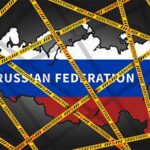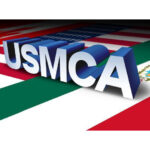BIS Expands Sanctions Against Russia, Belarus
 January 24, 2024 – The Bureau of Industry and Security (BIS) expanded export controls this week against Russia and Belarus to include a wider scope of products, including more materials and parts affecting the aerospace industry.
January 24, 2024 – The Bureau of Industry and Security (BIS) expanded export controls this week against Russia and Belarus to include a wider scope of products, including more materials and parts affecting the aerospace industry.
A new final rule, which also includes refinements to existing export controls, went into effect yesterday and will be published in tomorrow’s Federal Register. The final rule also “revises recent restrictions targeting Iran’s supply of Unmanned Aerial Vehicles [drones] to Russia.”
BIS says the expanded controls “enhance the effectiveness of its controls on these countries and … better align them with those implemented by U.S. allies and partners.” The agency also says the final rule “removes the lowest-level military and spacecraft-related items … from being eligible for de minimis treatment when incorporated into foreign-made items for export from abroad or reexport to Russia or Belarus.”
AAEI’s Export and Global Trade Compliance Committee (EGTC) will include the rule in its discussion at tomorrow’s scheduled meeting. AAEI meetings are for members only. Click here for information on becoming an AAEI member.
Lawmakers Call for Increased Enforcement of UFLPA
January 24, 2024 – Leaders of the bipartisan House Select Committee on the Strategic Competition Between the United States and the Chinese Communist Party (China Select Committee) are calling for “immediate action to strengthen enforcement of the Uyghur Forced Labor Prevention Act (UFLPA).”
In a letter Chairman Mike Gallagher (R-WI) and Ranking Member Raja Krishnamoorthi (D-IL) sent this week to Department of Homeland (DHS) Secretary Alejandro Mayorkas, the lawmakers urged:
- Aggressively step up enforcement of potential UFLPA violations by goods shipped from China and indirectly through third countries.
- Adding companies outside China that profit from the use of Uyghur forced labor to the UFLPA Entity List
- Exponentially increasing testing of goods at ports of entry for UFLPA violations
- Better publicizing CBP’s enforcement activities to deter would-be violators
- Enhance collaboration between DHS and other federal agencies, such as the Department of Justice, to better prosecute and assess penalties against UFLPA violators
- Appoint a top-level political official at DHS with the mandate to lead and coordinate its UFLPA enforcement efforts
The letter also calls on the Treasury Department to “assess the potential effect on UFLPA enforcement of altering de minimis eligibility for textile and apparel and other high-risk items,” such as not allowing such imported products from China to enter the U.S. under de minimis.
The letter names 29 companies that the lawmakers want added to the Entity List. Read the letter to Secretary Mayorkas.
WTO Moratorium on E-Commerce Tariffs Likely to End Next Month
January 24, 2024 – The World Trade Organization’s (WTO’s) E-Commerce Moratorium, suspending customs duties on electronic transmissions, will expire at thend of February unless WTO members agree to an extension at their Ministerial Conference next month.
Without an extension, customs agencies will be free to apply tariffs on software, digital payments, and cloud services, driving up costs for digital services. The U.S. withdrew Trump-era proposals on digital trade from the WTO last Fall.
The Moratorium has been in place and routinely extended since 1998.
the International Chamber of Commerce (ICC) is urging the WTO to renew the Moratorium’s extension. The ICC will hold a webinar tomorrow, January 25, 2024, at 8:00 a.m. EST. Click here to register for the ICC webinar.
AAEI Asks USTR for USMCA-related Extension to Avoid Disruptions
 January 24, 2024 – AAEI filed comments with the Office of the U.S. Trade Representative (USTR) last week, calling for an extension of the use of alternative staging regimes (ASR) to help carmakers meet the USMCA’s automotive rules of origin requirements.
January 24, 2024 – AAEI filed comments with the Office of the U.S. Trade Representative (USTR) last week, calling for an extension of the use of alternative staging regimes (ASR) to help carmakers meet the USMCA’s automotive rules of origin requirements.
AAEI says carmakers have invested billions of dollars to comply with the USMCA’s plan to create jobs in the U.S. and region and transition to “new, greener technologies.”
In the comments, AAEI says, “Sourcing and planning require time to ensure that automakers can build in the region in a cost-effective manner with high quality components. While the USMCA allows for transition time over the first five years, additional flexibility (e.g., extension of ASR) should be considered in consultation with U.S. automobile makers to ensure the successful localization of new technologies.
“The accelerated EV mandate makes it more difficult for auto manufacturers to meet the rules and should be considered for extending the ASR” beyond the USMCA’s 5-year transition period, adds AAEI.
AAEI Calls for Changes in Aluminum Import License Requirements
January 24, 2024 – AAEI sent a comment letter to the International Trade Administration (ITA) this month calling for an alternate approach to requiring primary and secondary smelt and cast declarations for import licenses. AAEI says the requirement is a significant additional reporting burden for importers, “especially when a license $5,000 or less does not require the information.” In response to Russia’s war in Ukraine, importers of the aluminum (and derivative aluminum) articles under the enumerated subheadings are required to provide the primary country of smelt, the secondary country of smelt, and the country of cast, even if the smelting/casting occurs in a country other than Russia.
In the comments, AAEI offers recommendations, such as allowing the addition of “applicability/exemption statements to the entry summary and requires certification for each line implicated by the HS codes in the case of an $5,000 or less license.” Read AAEI’s comments to the ITA.

